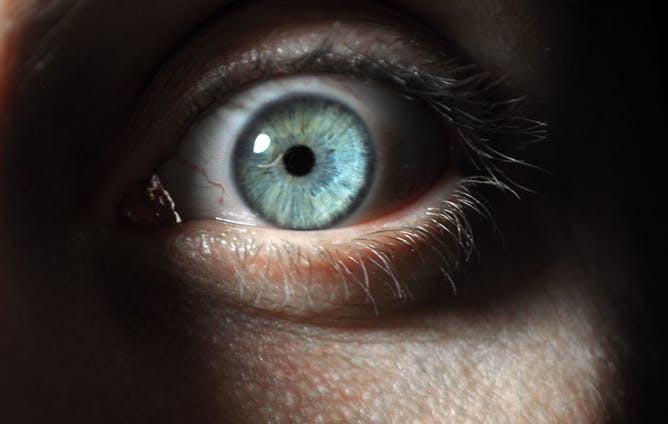|
|
|
|
Easter is one of the most important Christian holidays, but this year, the number of people actually identifying as Christian is expected to be at an all-time low. The proportion of Brits ticking Christian in the UK census dipped to 59.3% in 2011 from 71.6% a decade earlier, with many experts predicting that the number could drop below 50% this year. And according to the 2018 British Social Attitudes survey, some 52% of Brits said they didn’t belong to any religion, up from roughly 30% in 1983.
But while religious faith has taken a dip, curiosity about existential matters has not. It seems people are still intrigued about unexplained wonders of the world, but are increasingly looking for more secular answers. This is where we come in. Whether it’s pondering why people harm the harmless if there’s no such thing as evil or how regrets of long lost love stop us from being happy, The Conversation’s Life’s Big Questions series, in which experts answer questions
from readers, uncovers research that can provide compelling solutions to the most enduring philosophical dilemmas.
In the most recent article, Monica Grady, a professor of space science at the Open University and a practising catholic, reflects on whether the laws of physics could ever disprove God. She argues that while science can never strictly prove or disprove God, it can help us think of God in physical terms. “I have this image of God keeping galaxy-sized plates spinning while juggling planet-sized balls – tossing bits of information from one
teetering universe to another, to keep everything in motion,” she writes.
The ancient tradition of Easter demonstrates just how curious human beings are, always seeking answers and meaning in a highly complex world. So whether you are religious or not, should a niggling existential question pop into your head somewhere between the egg hunt and the martinis this holiday, do email it to us at bigquestions@theconversation.com and we’ll try to get a researcher on the case.
|
Miriam Frankel
Science Editor
|

|
|

Could God travel faster than the speed of light?
robert_s/Shutterstock
Monica Grady, The Open University
If God could break the laws of physics, why haven't we seen any evidence of the laws ever being broken in the universe?
|

Some 6% of people are sadists.
Brian Goff/Shutterstock
Simon McCarthy-Jones, Trinity College Dublin
What causes unprovoked acts of violence? And is there any place for such cruelty in our society?
|

Lost love.
Ekkasit Rakrotchit/Shutterstock
Rafael Euba, King's College London
Nostalgia is a powerful emotion, but we shouldn't let it take over our lives.
|

Don’t worry, be happy.
Shutterstock
Rafael Euba, King's College London
There are many ways to be happy, but we can also find comfort in the knowledge that our constant dissatisfaction is what makes us human.
|

Great colours in Cappadocia, Turkey. But what are they?
Olena Tur/Shutterstock
Philip Goff, Durham University
The experience of a colour can be profound, but it doesn't really exist other than in our minds.
|

shutterstock.
Tom Oliver, University of Reading
If we are not careful, the coronavirus pandemic could lead to a rise in xenophobic attitudes.
|

‘Who thought that?’
Shutterstock
Tom Stafford, University of Sheffield
The captain of a ship, or a soul, doesn't sail while ignoring the wind – sometimes they go with it, sometimes against it, but they always account for it.
|
| |
Featured events
|

|
King's College, Aberdeen, Aberdeenshire, AB24 3FX, United Kingdom of Great Britain and Northern Ireland — University of Aberdeen
|

|
Virtual, York, York, YO10 5DD, United Kingdom of Great Britain and Northern Ireland — University of York
|

|
Sustainable Places Research Institute, Cardiff University, Cardiff, Cardiff [Caerdydd GB-CRD], CF10 3BA, United Kingdom of Great Britain and Northern Ireland — Cardiff University
|

|
Aston University, Aston Triangle, Birmingham, Birmingham, B4 7ET, United Kingdom of Great Britain and Northern Ireland — Aston University
|
|
|
|
| |
| |
| |
| |
| |
|
|
|
|
|
|
|